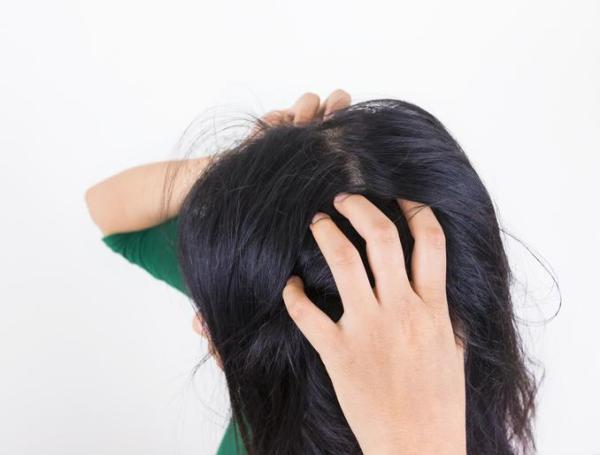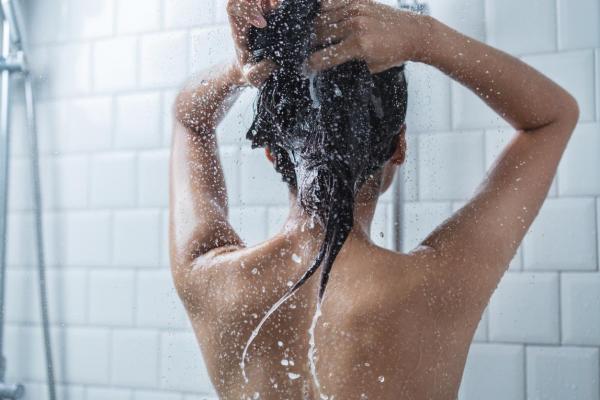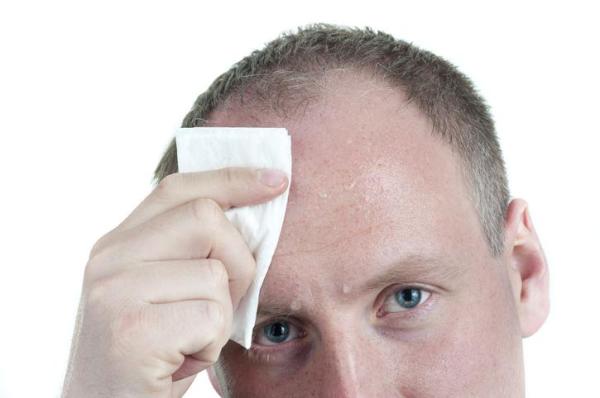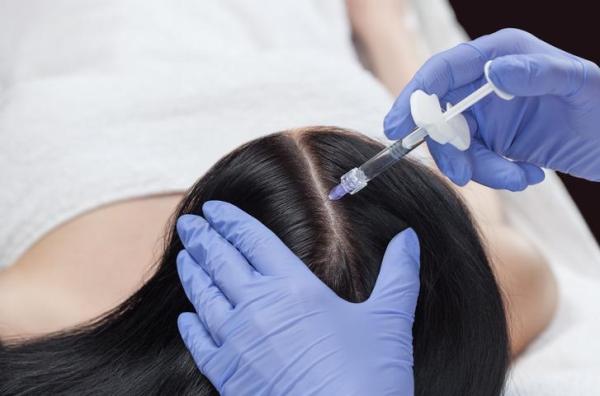
Excessive sweating of the head, otherwise known as craniofacial hyperhidrosis, is a common problem for a lot of people. Being difficult to control, it can be uncomfortable for those who suffer from this condition. Excessive sweating of the scalp is not only an aesthetic problem, since sweat runs down the temples, forehead or neck, but it may also have negative effects on the hair follicles. Indeed, excessive sweating can weaken the hair, causing it to become thin, limp and dull. This is not to mention to social problems it can provide for many people.
If you are wondering how to avoid sweating excessively from the head and face, read on. In this oneHOWTO article we will give you some tricks how to stop excessive head sweating. This will help alleviate the problem and make yourself feel much better in the process.
Why does the head sweat?
Craniofacial hyperhidrosis is the name given to the problem of excessive sweating when it occurs on the scalp and face. Much the same as hyperhidrosis of any part of the body, it can occur in situations of stress, after physical exertion or in a hot environment. It can also happen in cool temperatures or even when resting.
People suffering from this problem experience an abnormal and excessive amount of sweating, which causes aesthetic and social problems. This can impact on their daily lives.
Sweating is an organic response of the body, a method by which our organism cools itself. Sweat is secreted through glands spread all over our skin, including the skin on our head. It is composed of 99% water and the remaining 1% of substances are acids, salts and other compounds. The glands conserve salts during secretion in order to carry out the perspiration process. In this way, they contribute to the regulation of body temperature without altering the water-electrolyte balance.
Occasionally, some people may sweat excessively and unpredictably, resulting in so-called hyperhidrosis. If the glands in the head secrete the most sweat then the condition is known as craniofacial hyperhidrosis.
The main causes of excessive head sweating are:
- Exercise
- Reaction to heat
- Stress
- Consuming certain medications
- Genetics
Excessive sweating can also be a symptom of menopause or of certain diseases that have excessive sweating as a symptom. Such disease include hyperthyroidism, Parkinson's disease or cancer, among others. Heat rashes occur in those who overheat easily. Check out our article on how to cure heat rashes if this is also a problem affecting you.
Wash your head daily
The best remedy for reducing capillary sweating is good daily hygiene. Washing your head daily will help to keep all those bacteria that live on your skin under control and to remove the build up of sweat. When it comes to the head, the best way to ensure deep cleansing is to use a shampoo that suits your hair type.
Why is it so important to wash your hair regularly when you suffer from excessive head sweating? Sweat on the head and scalp creates a layer of salt, grease and water that greatly weakens the hair. What is more, hair prevents the sweat from being completely eliminated, as it acts as a shield to the scalp. If washing your hair and face is insufficient or inadequate, other hair or scalp problems may also arise in the long run.
After shampooing, always rinse your hair thoroughly so that the water washes away any residue that may have been left behind. Remember that sweat contains salt that can greatly affect the hair follicle. This means that, in cases of hair hyperhidrosis, hair will often become more fragile.

Drink cold water
One of the main functions of sweat is to regulate body temperature. This cooling system can, in some cases, cause capillary hyperhidrosis, which impacts on the daily lives of those suffering from it.
If this is your situation, drinking cold water could work for you. Drinking cold water will help you to regulate your temperature and, by reducing it, will help you to sweat less. Try it every time you feel hot or you start to sweat from the head and you will see a change.
You will also need to check you are drinking the right amount of water, which means also being careful not to drink too much.
Change eating habits
Sometimes excessive sweating occurs even without high temperatures or exercise. For example, eating spicy foods can cause what is known as gustatory sweating. The main characteristic is excessive sweating on the forehead, as well as around the mouth or sternum. This reaction is the result of the increase in body temperature produced by spicy or very hot food.
In this way, changing your eating habits could be beneficial, helping you to reduce head sweat. We recommend the following:
- Avoid spicy foods
- Avoid eating very hot foods
- Reduce your consumption of coffee, tea and other beverages that may contain caffeine or theine
- Decrease your fat intake
- Increase your intake of fruits, vegetables, oily fish and nuts
- Drink plenty of water to stay hydrated

Use topical treatments
If the above tips have not helped you to reduce excessive sweating of the head, you could try some of the available topical treatments to solve the problem. By this, we mean antiperspirant solutions, mainly composed of aluminum chloride or aluminum chloride hexahydrate.
This treatment is used to treat cases of hyperhidrosis in different parts of the body, and is applied to the specific area affected. It is important to note that it can cause irritation to the scalp, so it may not always be the best alternative for use treating head sweating. Before starting a treatment, you should visit your doctor or dermatologist to check with them if this is the right treatment for you, or to establish an alternative and better solution.
Botox therapy
Botulinum toxin can be another treatment for capillary hyperhidrosis. However, it is only for chronic cases which have been diagnosed by a doctor as it shouldn't be used as only a cosmetic treatment. It involves injecting botox into the sweat glands in order to block their operation and reduce excess sweat.
This treatment must be carried out by a professional and specialist, who will previously determine the viability in each case. It is especially recommended to use it for those cases in which the previous alternatives have not worked or the antiperspirant solutions have caused skin irritation.

Take medication for excessive sweating
Finally, we want to mention anticholinergic medications. These can be taken under medical supervision and can also help to control excessive sweating. This treatment, taken orally in capsule form, is perfect for preventing head sweating on an ad hoc basis. Alternatively, it can be used in extraordinary situations such as before attending an event or an important meeting.
Anticholinergics must only be prescribed by a specialist. Only they can properly evaluate the case, establishing if sweating affects the face and judge how to avoid excessive stimulation of the sweat glands. Mild side effects may include a dry mouth, constipation or blurred vision. For this reason, it is important to consult your doctor beforehand to see if this treatment is the best solution for your craniofacial hyperhidrosis.
The best recommendation to control excessive head sweating is to consult a dermatologist. They will give you guidance on the best treatment for you, with personalized recommendations made according to your situation.
If you want to read similar articles to How to Stop Excessive Head Sweating, we recommend you visit our Weight & image category.